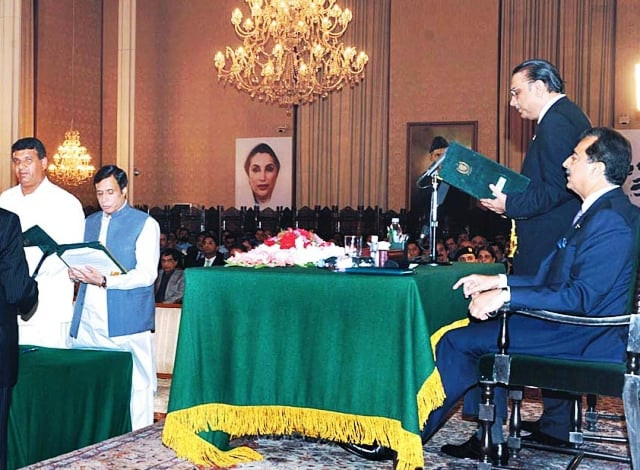PPP and PML-Q: A divisive alliance
Significant issues have risen even before the new ministers walk into their office or assume other trappings of power.

Within the PML-Q there is annoyance over the deal agreed on by the Chaudhrys, with a number of new ministers dissatisfied with their portfolios. The fact that three immediate relatives of the Chaudhry clan were given cabinet posts has only added to the angst, while others within the party believe it should never have linked up with the PPP in the first place. The situation is not a happy one and Shujaat Hussain and Pervaiz Elahi are said to have reached the deal almost on their own, with much internal resistance. There is also conjecture that more factions may form within a party that is already splintered. Within the PPP, too, all is not well. Questions of ideological integrity have been raised, Raza Rabbani has quit his post as minister and disquiet is said to run down the ranks, overtaking workers who see the Chaudhrys as arch-enemies of the Bhuttos and of their beliefs.
These issues have for now taken centre-stage. But there are other elements to the agreement which could assume great significance in the years ahead. There has been a consensus on carving out two new provinces — one in the Seraiki belt and one in Hazara. The implications of this are many; questions arise over opting for provinces on the basis of ethnicity alone. This will become a key election issue — provided the alliance holds and is able to work together despite significant issues that have arisen even before the new ministers walk into their offices or assume the other trappings of power.
Published in The Express Tribune, May 4th, 2011.














COMMENTS
Comments are moderated and generally will be posted if they are on-topic and not abusive.
For more information, please see our Comments FAQ